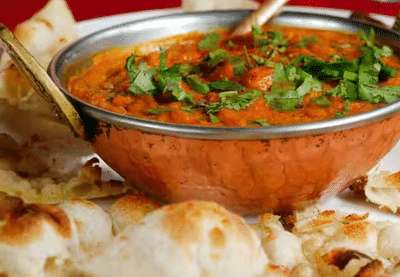Leftover food can be a huge help during these times. If used wisely, it can not only fill our plates but also save us money and time.
We all know that fresh food is the healthiest, but it's not always possible to measure and cook every day. Sometimes, due to busy work schedules or fatigue, we don't have the time or inclination to cook. Leftover food can be a great help during these times. If used wisely, it can not only fill our plates but also save money and time. So, let's learn how to properly store leftover food and find new ways to eat it.

1 /7
If you're stressed about cooking frequently, plan your meals a day in advance. You can make large quantities of recipes like dal, vegetables, or cheela-dosa batter and store them in the refrigerator. This will save you time and avoid having to cook the next day.
2 /7
Some foods taste even better when reheated. Soups, dal or curries, roasted vegetables, and one-pot meals are just that. Planning your next meal around these leftovers will improve the taste and save time.
3 /7
Many times, we leave food in the refrigerator and forget about it. An easy way to prevent this is to store food in glass or transparent containers and jars. This will allow you to see it every time you open the refrigerator and use it before it spoils.
4 /7
If you don't have enough leftover food to make a full meal, incorporate it into new recipes. For example, add cooked vegetables to an omelet or cheela, add boiled chickpeas to a salad, or make fried rice or egg rice from leftover rice. This way, your leftovers won't go to waste and will still taste good.
5 /7
Sometimes, little by little, a lot of leftover food accumulates in the refrigerator. At such times, you can have a leftover party. Take out all the containers, ask your family members which leftovers they like best, and serve them in new ways. This will make sharing a meal fun and put the leftovers to good use.
6 /7

The method and timing of food storage also matter. Therefore, refrigerate food immediately and avoid leaving it uncovered for extended periods. Store vegetable pieces, boiled potatoes, or stale bread separately. This will prevent food from spoiling quickly and allow you to eat it safely.
7 /7
Leftover food can be used not only for the next meal but also in daily recipes. For example, use leftover dinner for lunch, collect leftover vegetables and create new recipes, or turn stale bread into fried roti or paratha. This way, your food won't go to waste and you'll save both money and time.
You may also like

Asmongold suggests Twitch uses a “whitelist” to shield some streamers from view-bot penalties

White House press secretary dodges question on Trump getting a sudden MRI scan: 'I'll check back...'

Is Stephen Curry playing tonight vs the Phoenix Suns? Latest update on the Golden State Warriors star's injury report (November 4, 2025)

BBC Panorama viewers left fuming over Andrew special as they issue same complaint

Liverpool told VAR made mistake in controversial Real Madrid penalty decision







